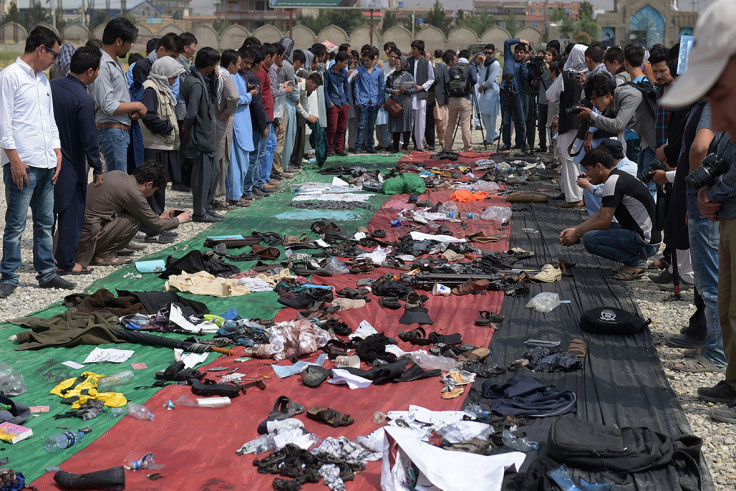Isis warlord in Afghanistan Saad al-Emarati among 122 killed by troops, say officials
The Afghan army has began a purge of the Nangarhar province after a twin bombing in Kabul.

A top Islamic State (Isis) chief in eastern Afghanistan was one of 122 militants killed by the Afghan army in a purge following the deadly Kabul attacks. On Monday (25 July), Afghan troops launched a large overnight offensive in the Nangarhar district which ended in a firefight, according to security forces.
The nation was rocked by twin suicide blasts – one of the deadliest attacks in the last decade – on 23 July which ripped through the Afghan capital, killing as many as 81 people and injuring 230 others.
According to Attahullah Khogyani, a spokesman for Nangarhar's governor, senior commander Saad al-Emarati was among the dead. Given the title "the emir of the eastern province of Wilayat Khorasan" (Afghanistan and Pakistan) by IS (Daesh), al-Emirati was an establishing member of the terrorist group in the war-torn nation.
He is said to have launched several attacks against the Taliban and the government. IS fighters are dispersed in pockets around the country, concentrated in the southern and eastern provinces, and have been condemned by the Taliban for their brutal treatment of locals.
The military operation was intended to destroy training camps. Speaking after the assault, US military spokesman Brigadier General Charles Cleveland said: "We think that Daesh is under pressure. Their terrain gets restricted, you see them trying to conduct more external operations and attacks."
The overnight raid in Kot, was lead by Afghan special forces commander General Basmullah Wazari who was assisted by foreign air support. The Afghan interior ministry say they have killed 654 Daesh and Taliban fighters, including several senior commanders, in Nangarhar since May.
A former Taliban commander, al-Emarati switched allegiance after founder Mullah Omar died in 2013. He officially pledged allegiance to IS leader Abu Bakr al-Baghdadi in January 2015 in a video release two weeks before the "Khorasan" branch was established.
An IS commander using the name Abu Omar Khorasani said the Kabul bombings were in retaliation to the support offered by some members of the community to the regime in Syria. Some of Afghanistan's Hazara minority have gone through Shiite-governed Iran to fight for Syrian President Bashar al-Assad.
© Copyright IBTimes 2025. All rights reserved.






















